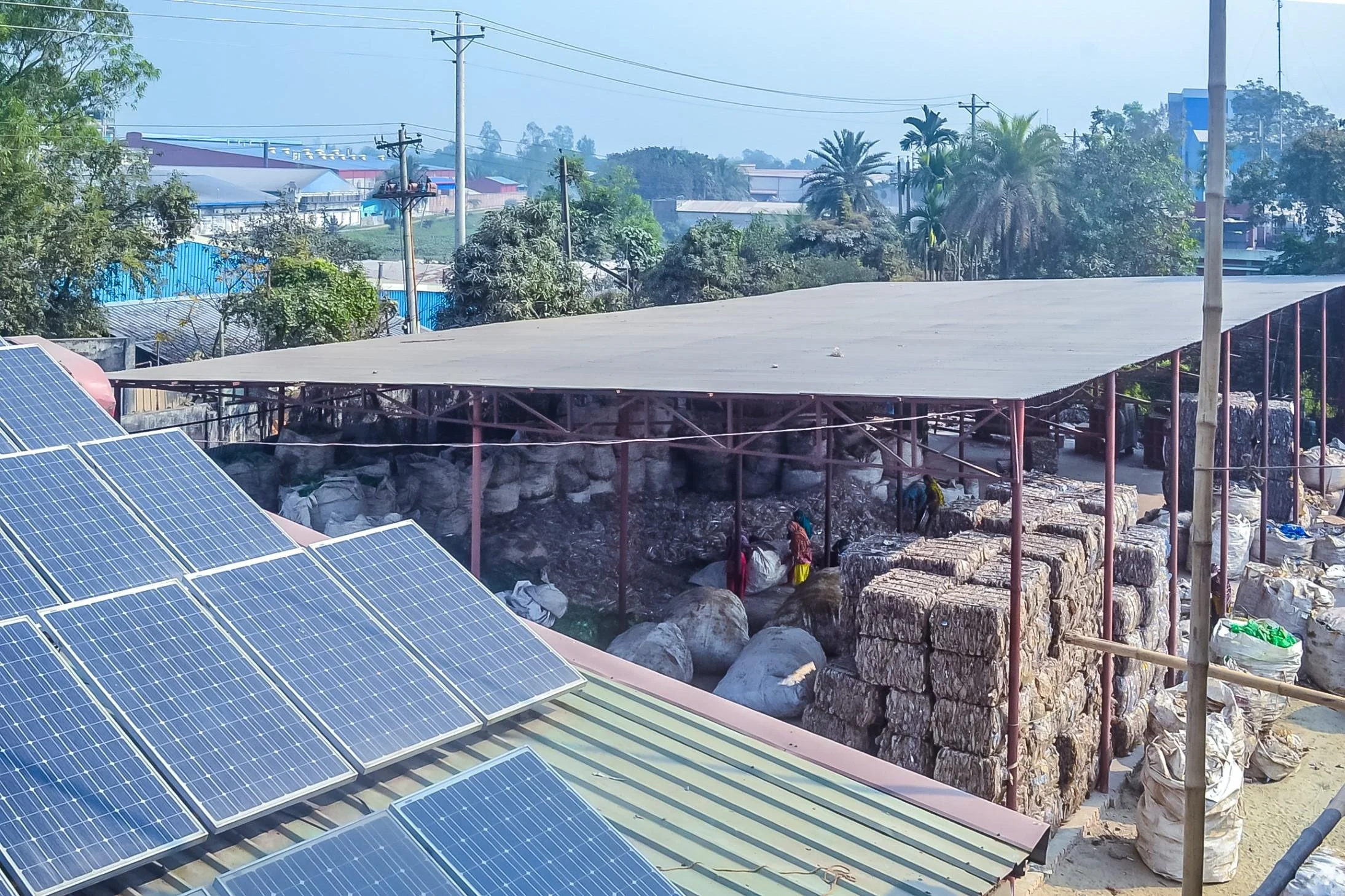Circular PET
The Problem
Dhaka, the capital city of Bangladesh is one of the fastest growing and one of the most heavily occupied cities in the world. Over population and enormous consumption lead to serious waste management problem here. According to JICA team of “Clean Dhaka Master Plan” (2004) in 2015, solid waste generation within Dhaka City Corporation area will increase to 4600-5100 tons per day. Another study by Waste Concern (2014) shows plastic waste covers 5.46% of total solid wastes at landfill sites in Dhaka. According to ADBI and ADB, 2000 report estimation shows that in 2025, total solid waste generation in Bangladesh will be about 46,064 tons/day and 5% of these wastes will be plastic waste. Therefore, it is necessary to manage this huge waste to promote a healthy environment and reduce environmental risks.
Bottles made of polyethylene terephthalate (PET, sometimes PETE) can be "recycled" to reuse the material out of which they are made and to reduce the amount of waste going into landfills. After the plastics are collected, they are sorted into different groups based on their colour schemes. Next, the plastics are molten to form little bits of plastic after processing. All the small bits of plastic are stored in large bags and eventually sold away to other factories that manufacture plastic materials such as bottles and containers. These small bits of PET resins are reused for making PET bottles and containers. Because of PET's full recyclability and wide variety of uses, the market for recycled PET is limited only by the amount of material that is collected from consumers and recycling facilities.
Our Solution
Project on Circular Economy Materials (PCEM) in partnership with local PET recycling plants in Bangladesh.
Planning, implementation and monitoring to ensure methodology and Circular Environmental Credits compliance.
Provide training, healthcare and social benefits at a community level with local partner.
Substantively contribute to multiple UN SDGs.
Total lifetime of the PCEM for 20 years
Our Impact
Environmental Protection: Reduce plastic pollution by recycling plastic waste, thereby preventing it from ending up in landfills, rivers, and oceans. This helps in mitigating environmental contamination and promoting a cleaner, healthier ecosystem.
Economic Development: By creating jobs, employment opportunities and supporting local economies thus, contributing towards local economic growth.
Resource Efficiency: Recycling plastic helps in conserving resources by reducing the need for virgin plastic production. This not only saves raw materials but also reduces energy consumption and greenhouse gas emissions associated with plastic manufacturing.


